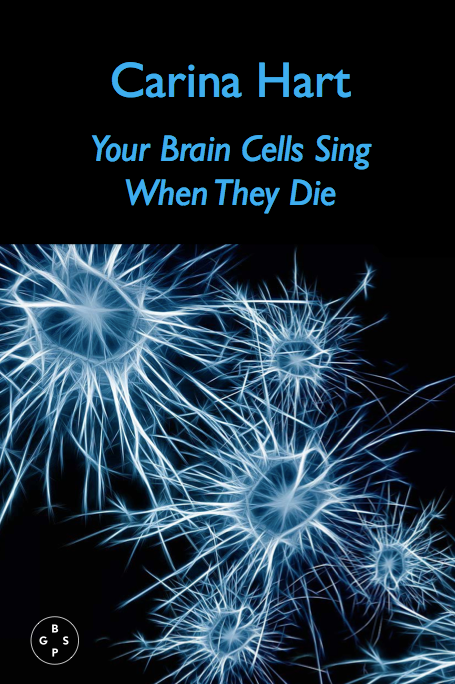Eyewear Publishing
Your Brain Cells Sing When They Die
Your Brain Cells Sing When They Die
Couldn't load pickup availability
By Carina Hart
OUT NOW!
Your Brain Cells Sing When They Die is a loving excoriation of the structures that shape our thoughts, desires and days. Its surreal satire begins in the office, taking in the language of bureaucracy and a collision of administrative forms with poetic forms: a lyric to lost love is recast as a meeting agenda, and a suicide note takes the form of a sonnet-memo hybrid. Just when personal desires have been turned into binary code, individual agency is set against the collective perspective of the beehive. As the bees try out banking and Instagram, people sink into the footprint path leading them round Ikea. This memorable debut is both spiky and tender, exposing the skeleton of the everyday with dark irony and ruthless precision.
Carina Hart is a lecturer in English Literature at the University of Nottingham in the UK, having previously worked at the University’s Malaysia Campus. She has been shortlisted for the Overton Prize for poetry and highly commended in the Aurora fiction competition, and was shortlisted for the Melita Hume Prize in 2013 before being awarded second place in 2017. She has published widely in magazines and anthologies, as well as publishing academic work on global Gothic and fairytale literature.

"Your Brain Cells Sing When They Die simply must be read. This is absolutely cutting-edge poetry, in which the compressive absurdities of late capitalism and the actual living conditions of the lyric imagination, from the understated evils of canned tiger soup to the need to rethink the sweet old metaphor of the beehive, take shape via chapters and individual pieces so well-formed as to offer accessible and profound disturbance. This is energetic stuff, brilliant at discerning traps and potential. Nothing is so ordinary as to escape reconsideration, even ‘[…] dining / chairs of brute bare / wood, angling your body in / the shape of a / lightning bolt.’ " - Vahni Capildeo
"The 'publicness' of many of these poems gives them something pretty unique, which combines really tightly with the formal choices and a register of language not often found in poems. As a first collection it's a really exciting way to arrive." - Matthew Welton


